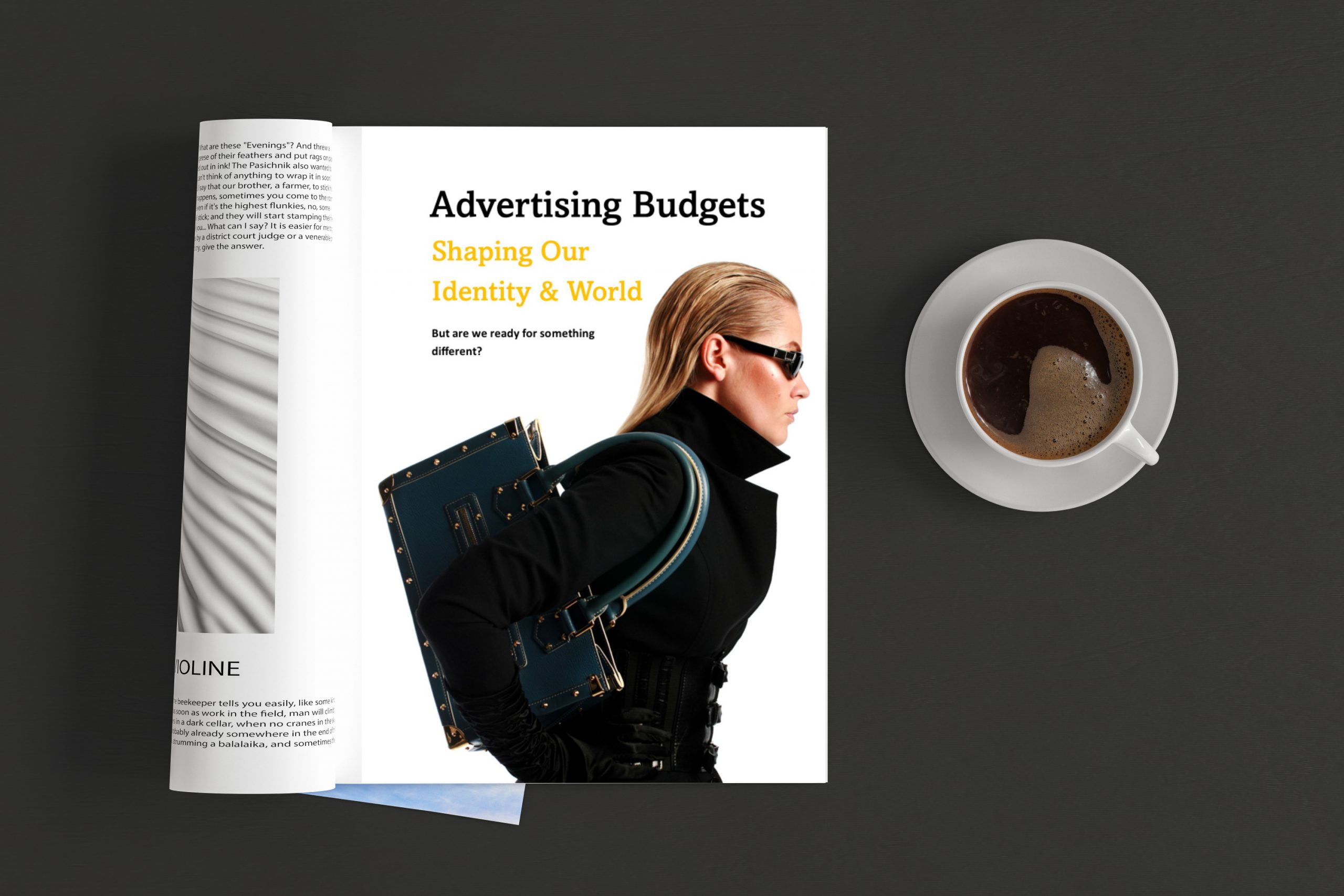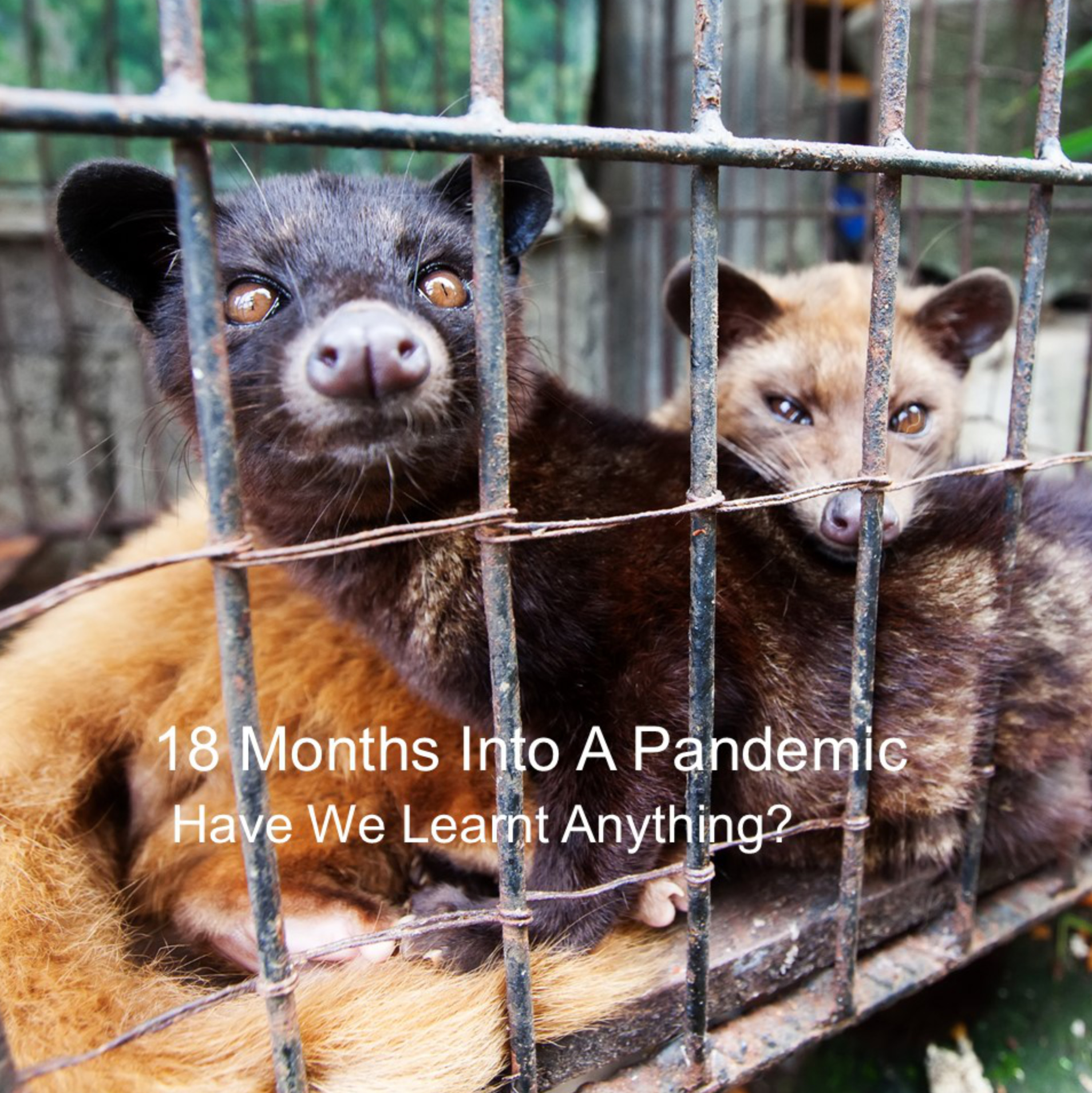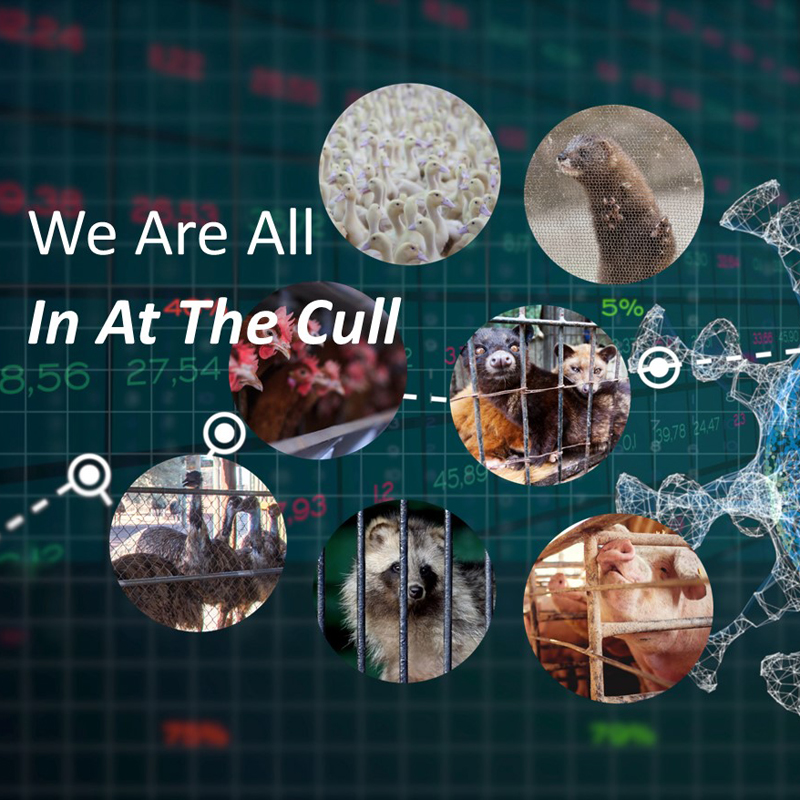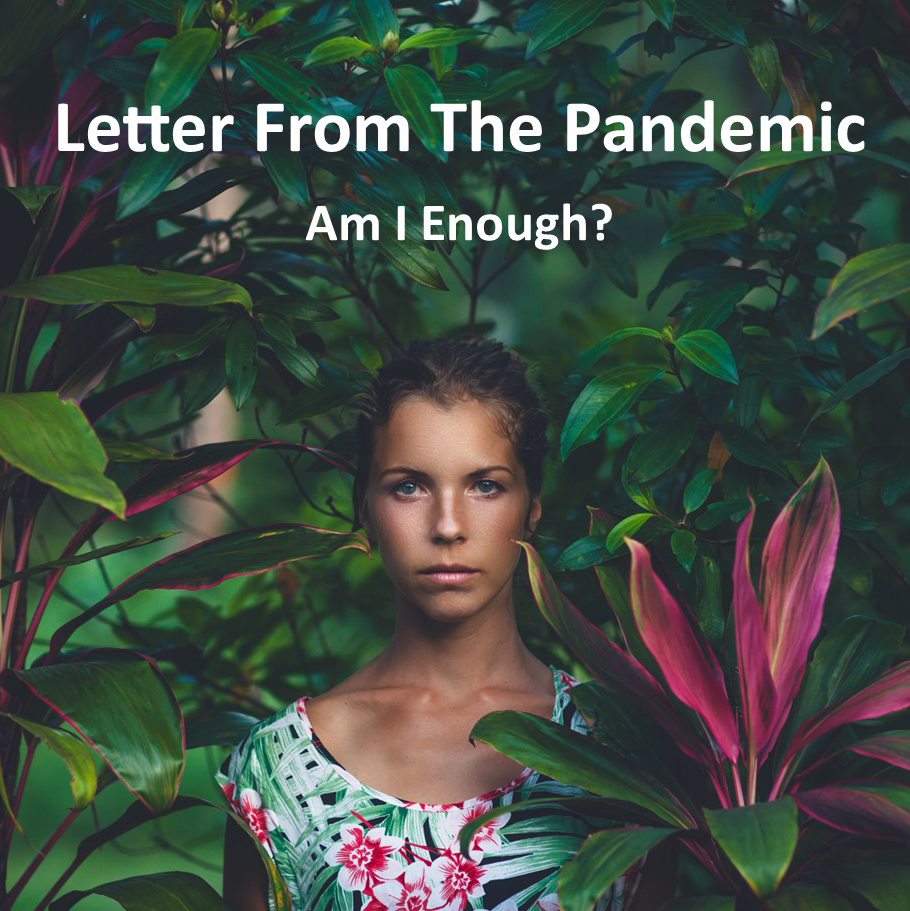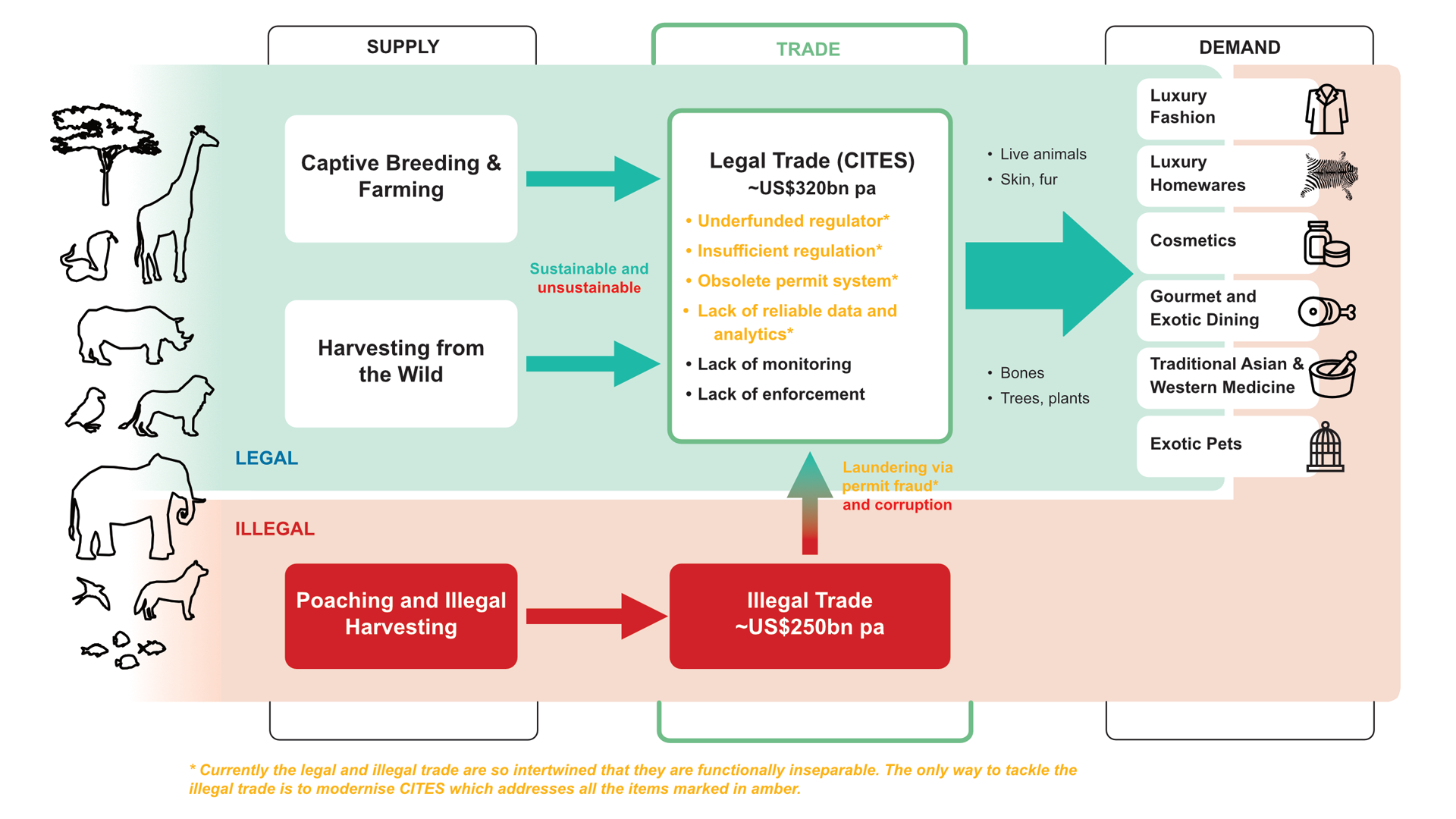Those who love a British political thriller, particularly one which includes tension between the government and the press, the term, “it’s had a D-Notice slapped on the story” will be familiar. For the individuals who don’t know what a D-Notice is, here is a little background provided by the BBC’s Secret Britain Series. The “Defence Advisory Notice System” – as it is now called – is supposed to be entirely voluntary. In reality, though, it’s very rare for any of the mainstream media [MSM] organisations to ignore the committee’s requests [not to publish a story]”.
Why does the MSM, in the main, accept requests not to publish or broadcast certain stories about activities the government wants to keep secret? The reality is, ‘voluntary’ compliance to a D-Notice means they don’t lose access to government sources for future interviews and information. So why am I telling you all this and where is the link to the legal trade in endangered species anyway?
I have made it no secret that I am concerned about the lack of MSM articles covering the unsustainability of the legal trade in endangered and exotic species. The silence of the MSM about the legal trade was the reason for creating both How To Spend It Ethically and The Fly. In the last three years, two critical events have happened that lay bare the risks of this massive, legal trade.
Firstly, the landmark 2019 IPBES Report into the global extinction crisis confirmed that direct exploitation for trade is the most important driver of decline and extinction risk for marine species and the second most important driver for terrestrial and freshwater species. Yet MSM articles rarely cover this issue.
This was brought home to me again earlier this week, with an article titled “The five biggest threats to our natural world … and how we can stop them”. The article does refer to the IBPES report and direct exploitation as one of the 5 threats, saying,
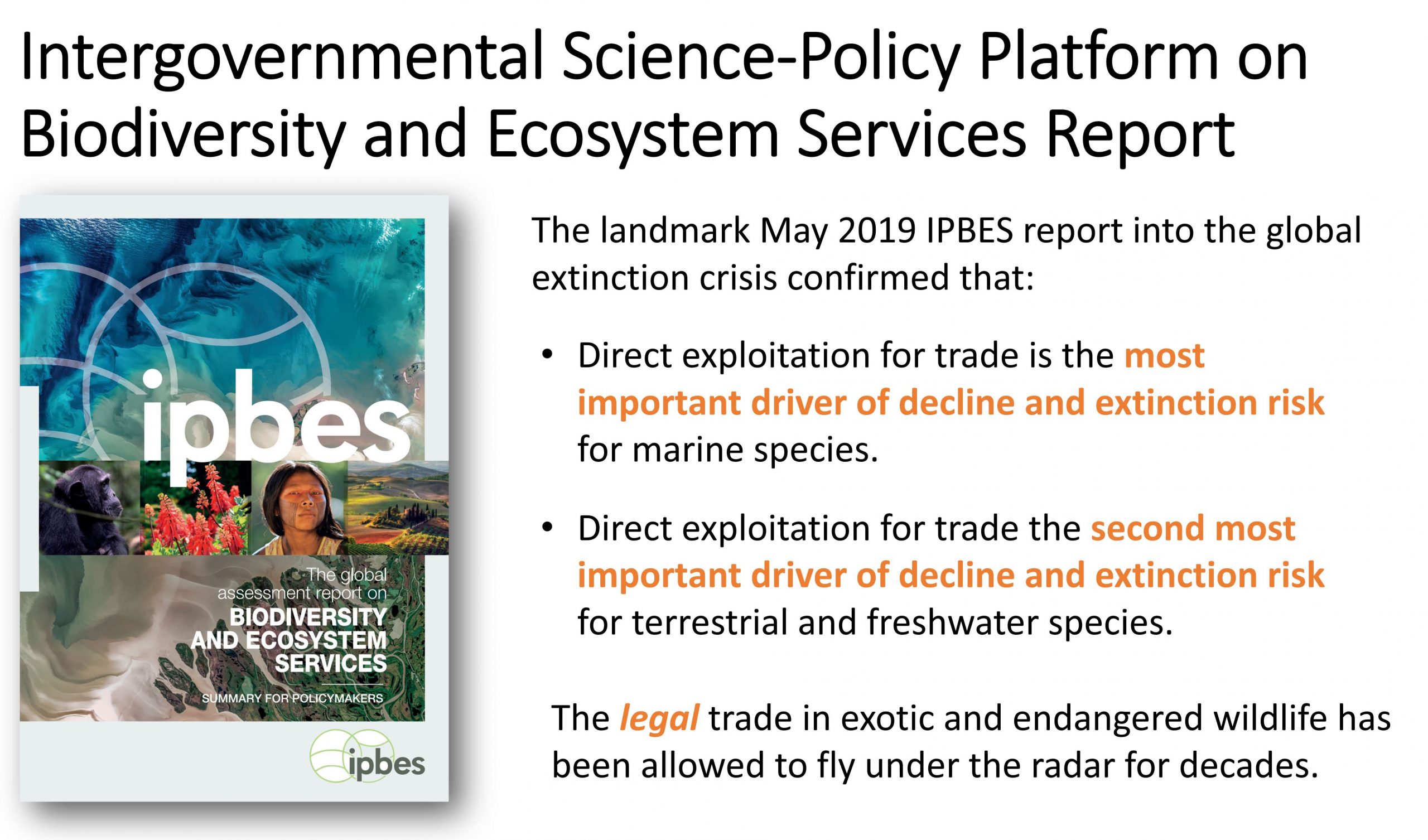
“From hunting, fishing and logging to the extraction of oil, gas, coal and water, humanity’s insatiable appetite for the planet’s resources has devastated large parts of the natural world.” But the specific example it goes on to give for this factor is groundwater extraction!
This is completely misleading, as groundwater extraction does not even rate a mention in the summary assessment under ‘direct exploitation’ in the IPBES report. What the IPBES report highlights is the ‘direct exploitation, in particular overexploitation, of animals, plants and other organisms, mainly via harvesting, logging, hunting and fishing’. The vast majority of this ‘biomass extraction’ goes towards international trade, not domestic consumption.
While extraction of groundwater is a huge issue in itself, when it comes to the ‘main drivers’ of biodiversity loss what the article manages to do is to conjure up a fringe issue. By accident or design, this clinically sidesteps the main problem, which is the legal trade.
The second critical event to lay bare the risks of the legal trade in exotic and endangered species is of course the global pandemic. But when future historians research how the MSM covered the issue for the public, the stories that will be absent are those showing the root cause of the pandemic was the legal trade in endangered and exotic species. If it wasn’t the legal trade, then why did China not only shut down all ‘wet’ markets selling exotic live animals but also its massive captive breeding industry? An industry that has provided the ‘raw materials’ for not only food but also fashion.
We are over 18 months into the COVID19 pandemic, and yet there is still very little coverage of the legal trade in endangered and exotic species in the mainstream media. In spite of the global pandemic being the top news story over this time, the zoonotic origin is rarely linked to the legal wildlife trade. As with climate change, businesses, industries and governments need to be held to account, and exposed, for the lack of progress in tackling biodiversity loss due to trade. This US$350billion trade is decimating the world’s remaining wildlife and putting human lives at risk.
Nature Needs More has covered the link between the legal wildlife trade and COVID 19 in our three news channels:
We continue to engage with journalists and the MSM, with the aim of influencing them to not only write about the illegal wildlife trade but to provide a more balanced view, by exposing the issues created by the legal trade. We are also trying to get a greater understanding of the obstacles faced by the MSM in printing articles about the legal trade in endangered and exotic species.
We appreciate advertising revenue is increasingly harder to find, and media outlets, particularly those who consider themselves progressive, will struggle to manage the conflicts of interest between investigative work and advertising. Telling captivating stories that open people’s eyes to the damage being done by business and industry, through their unthinking and unchecked exploitation of nature, greenwashing and lack of commitment to supply chain transparency is obviously a difficult decision for MSM outlets to make. Luxury brands for example are one of the last industries with huge advertising budgets; on average, they divert 8% of their turnover into funding advertising initiatives.
The global legal trade in endangered species which supplies the fashion, home furnishings, beauty, food, medical and pet industry continues to be clinically side stepped. Articles about the legal trade in endangered and exotic species need to cover luxury business, luxury lifestyles and luxury consumption. They also need to interrogate supply chain transparency, legislation enabling businesses to hide their activities under the guise of ‘commercial in confidence’, the greenwashing which hides the lack of any real progress in companies’ glossy sustainability reports. In depth investigations are needed of both domestic and international regulations of this legal trade. It is time for the truth to come out about the overexploitation of endangered species.
Legal trade is a key driver of biodiversity loss and the extinction crisis. While the MSM continues to ignore this problem, public awareness and pressure on governments for change remains low. The result is that from a policy perspective it not only flies under the radar, there is no radar.
Only a free and unrestrained press can counter propaganda, perception management and corruption. The press serves as the eyes for society, and only the freedom to question, publish and discuss, allows a public discourse that enables a functioning democracy. With the MSM preferencing access to government sources, corporate PR in return for advertising dollars and the equivalent of ‘voluntary’ D-notices to side-step issues that their advertisers and government sources don’t like, we stand little chance of improving the rock-bottom trust in our institutions.
While we wait for this situation to change, Nature Needs More will write some of the stories that need to be told. We thank our small but constantly growing subscriber base for their support in doing this work.

